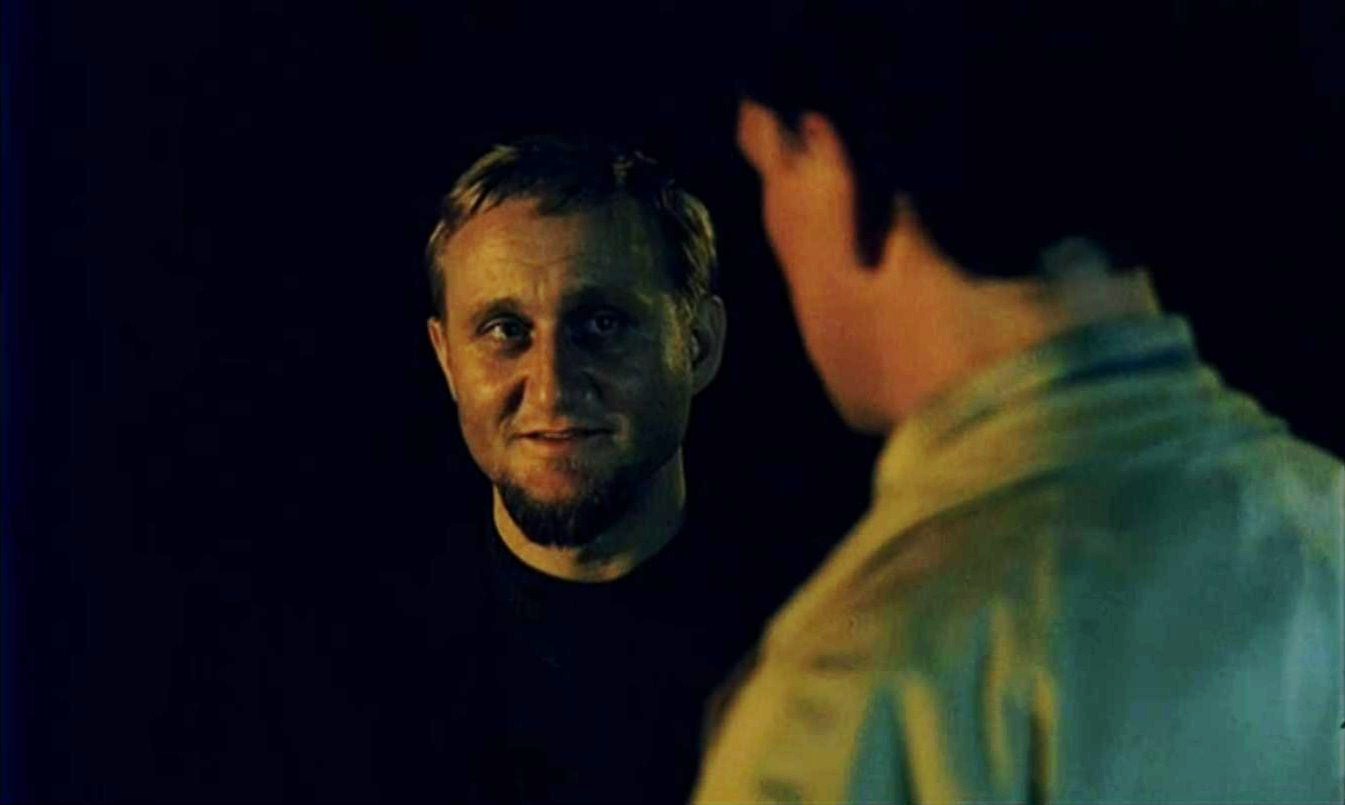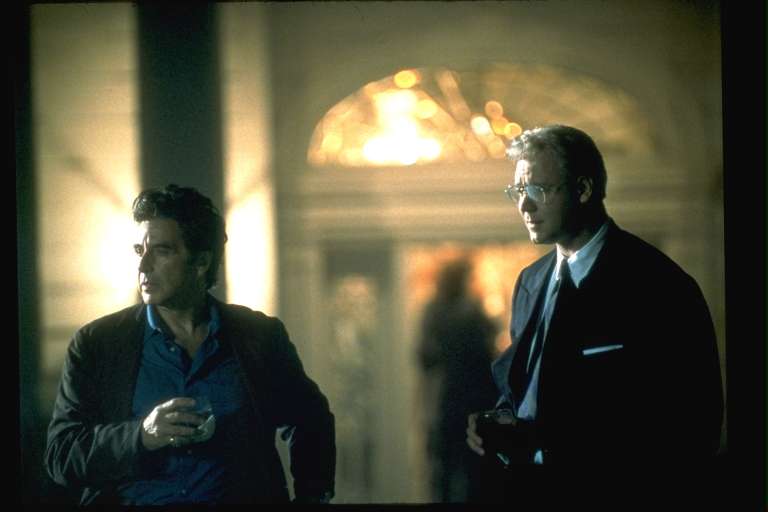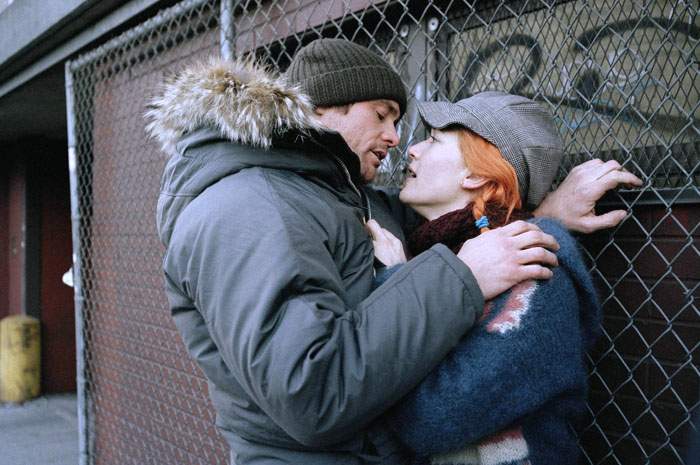6. Sophie’s Choice (1982)

We know from the title that Meryl Streep is going to have to make a difficult choice at one point during the film. As the film continues in 1950s Brooklyn, with flashbacks to World War II in Europe, we can start to sense an impending doom around her, Kevin Kline, and Peter MacNicol’s trio of characters.
When the moment in the film finally arrives, we are stunned, just as Sophie. Do you choose for your son or daughter to live while the other is sent away to die? It’s an impossible question for anyone and most especially the mother to decide. How can you? It’s scary how Pakula makes this horrific question pop in the mind of parents as they watch the film before quickly turning away or just waiting for Sophie’s choice, not their own.
This one question is constantly repeated in film history as one of the most impossible, especially since this is the one thing people most remember about the film. What more is there to say?
7. The Vanishing (1988)

A film that made Stanley Kubrick call Sluzier to tell him how freaked out he was after seeing this film. “The Vanishing” tells the story of a young couple as the woman disappears from a gas station. The rest is a transcendent nightmare grounded in frightening reality.
The scenes play out in real time before Raymond confronts Rex, the man responsible for the supposed kidnapping. Even as the film plays out, we don’t really know what is going on until he states that he will take him to his lover if he gets in the trunk of his car and takes some form of food.
What? We receive no news about where she is. Is she still alive? It is all done verbally in a stark film that only European directors could have created. Therefore, would you go into the unknown abyss to potentially save your lover? It is a difficult question with no uncertainty, as the character comes to realize.
Although the question doesn’t come about until the end of the film, Sluzier’s storytelling allows for real performances in a non-thriller thriller-esque way. This is what makes the question by Rex even more scary in tone, with its unnervingly real and shockingly truthful discovery.
8. The Insider (1999)

Michael Mann’s film dives into a topic that few would dare go against. Inspired by real events, we see Russell Crowe’s inside worker attempt to bring down the tobacco industry in the United States with the aid of Al Pacino’s news producer.
The film was highly relevant as the case was fairly new and even today asks the question – would you attempt to bring down one the biggest industries in the world to inform the public of its darkest secrets?
Though easier said than done, anyone with a moral conscious would do what is better for oneself and the whole of society’s health. But as Crowe’s man discovers as his life is at stake, he must decide if it’s really worth it, because it’s not going to take away the industry or stop millions from continuing to smoke anyway.
In terms of Pacino’s point of view, do you allow this story to be published and potentially destroy your entire career, show, and reputation? It’s a risk, but that’s what great journalists are here for. These two real life men conspired to bring the truth to the American public and therefore the world. But were they really listening or even willing to do so? It makes one think about the next decision they make – is it all really worth it in the long run?
9. My Night at Maud’s (1969)

One of the six Moral Tales that Rohmer explored in the late 1960s and early 1970s, this one might be the most difficult to comprehend. Why? His other films deal with sexual temptation and going against one’s values, but when Jean-Louis Trintigant’s Jean-Louis, a devoted Catholic man, spends the night with Francoise Fabian’s Maud, a divorced woman, we truly see the struggle of his decisions.
As his friend heads to his nearby home on a snowy Christmas Eve, Jean-Louis spends the night with Maud in a platonic way, as he had hoped. As their philosophical and deep conversations continue, Jean-Louis is presented this question – has he been living a sheltered one-dimensional life without considering the possibilities of the real world? He is so self-assured in his doctrine and Catholicism as he is currently engaged, he starts to see things through the eyes of Maud. A completely different character than his own.
As the night ends and we jump years down the right as Jean Louis’ voiceover rambles, we see the decisions he made about truth, self-realization, and honesty to one’s self and life. It makes us think, are we experiencing life to the fullest? Are we sheltering ourselves in comfort, security, or our traditional values that were pressed onto us? It makes for truly compelling questions to ask ourselves in Rohmer’s most heavy moral tale.
10. Eternal Sunshine of the Spotless Mind (2004)

When it comes to love, almost everything else goes out the window. Charlie Kaufman wrote a lo-fi screenplay that allowed Gondry to explore the subconscious and consciousness of our minds of our once past loves.
The film unfolds as Kate Winslet’s Clementine is slowly erased from the mind of Jim Carrey’s Joel. And at times, the film is funny, romantic, sad, and everything in-between a relationship can present, but at its core, it’s the truthful banality of love in the day-in-day-out routines that truly show these two were meant for each other.
Therefore, even if you suffer a horrible breakup, is it worth it to erase them completely from your memory? As the two characters discover in Kaufman’s screenplay as it comes full circle, all the hope, pain, joy, and despair of Clementine and Joel’s relationship is truly meant to be.
The film plays out in the past, present, and future, which truly allows the audience to become an active participant in keeping up with Gondry’s zany style and rhythm, while reflecting on their own relationships – from the past, possibly present, or pending future.
In the end, is it really worth destroying some of your life’s experiences to escape temporary pain? Erase that relationship? Maybe Joel sums it up best with, “That’s okay,” as he stares at his soulmate in a hallway.